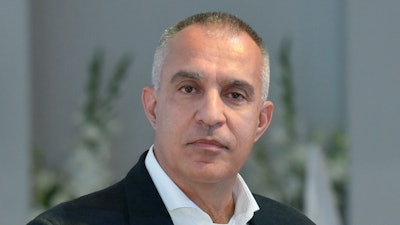Academia and industry alike have long grappled with the lingering issue of gender equity in the science, technology, engineering, and mathematics (STEM) disciplines and professions.
The National Girls Collaborative Project’s 2023 “State of Girls and Women in STEM” report revealed much of the same. Women comprise 48% of the total workforce in the U.S. but only 34% of the STEM workforce; they also earn only 24% of bachelor’s degrees in engineering, 24% in physics, and 21% in computer science.
These inequities exist worldwide. Women make up only 29.4% of the STEM workforce in the U.K. and 28% in Australia. Across Europe, women account for more than half of the continent’s population but just 17% of its information and communications technology professionals.
What is behind this imbalance, and what can be done to reverse it?  Ami Moyal
Ami Moyal
It is crucial to understand that gender inequity in STEM is driven more by perception than by reality.
Engineering was originally a male-dominated profession, likely due to the fact that fields such as electrical and mechanical engineering were perceived as “physical, dirty-hands” occupations. Further, for deep-rooted cultural reasons, women have been steered away from STEM careers under the false pretense that they are somehow innately less talented in those fields — a perception that is often planted in girls, whether subtly or overtly, from a very young age. Even though modern society has been trying to break down these perceptions, most engineers are still men, and consequently young women do not have sufficient female engineer role models.
Yet today, as is the case in many professions, the work associated with engineering occurs behind a computer. That, along with changing perceptions regarding gender stereotypes, is leading to a slow but steady increase in the number of female engineers.
At Afeka - Academic College of Engineering in Tel-Aviv, we are well aware of the gender inequity that exists within our country’s workforce — particularly in the Israeli high-tech ecosystem, where women account for 30% of employees, according to the Israel Innovation Authority. We aim to counter this inequity in our recruitment process, bringing as many female students and alumni as possible to serve as role models for potential new students, while paying special attention to keeping our marketing campaigns gender-balanced. In March, we launched a special campaign geared towards women that featured female alumni speaking about their decision to study engineering and the success they have experienced as engineers.
We also try to lead by example. Women make up 44% of our full-time faculty — which is notable because most of them are engineers — and a majority of the college’s management team, both academic and administrative.
That said, we are not immune to the pattern of gender gaps, as women constitute 29% of the student body at Afeka College. At the same time, within the broader category of engineering and science, it is instructive to examine the discrepancies in enrollment figures between fields. While our mechanical and electrical engineering programs have 15% and 16% female enrollment, respectively, women comprise 26% of software engineering and computer science students, 46% of those studying engineering and management, and 67% of students in medical engineering. Given the comparable nature of each program with regard to their academic workload, level of difficulty, many shared courses and course content, and even the similarity between the types of roles they will hold in the workforce, these discrepancies can only be explained by perceptions and cultural biases, rather than reality.
We are witnessing progress, albeit gradually. Female enrollment is increasing at a rate of 1-2% per year at Afeka College — and has doubled over the past ten years.
With the implementation of policies and initiatives that encourage gender equity, we believe that the enrollment numbers will continue to improve. As a public academic institution, we view ourselves as a national, economic, and social engine for growth. We build collaborations with NGOs and the educational system in order to promote a stronger national education continuum in the STEM disciplines, with social involvement programs geared specifically toward the female population. For example, we adopted the “Cracking the Glass Ceiling” program for advancing STEM educational excellence among young girls from Israel’s peripheral regions. As part of this program, junior high school girls visited Afeka’s campus several times a year, take part in hands-on workshops led by female engineering students in our labs, and meet with female faculty.
Another program, “WeWomen Afeka,” establishes a women-only mentoring chain. A leading female executive will mentor an experienced Afeka alum; the experienced alum mentors a new graduate who just entered the workforce; the new graduate mentors a current Afeka student; and the college student mentors a high school student who is focused on STEM. The year-long program also consists of on-campus meetings that bring all of the participants together and a joint engineering project.
Accordingly, when we inevitably continue to hear that women have lagging interest in engineering and other STEM disciplines, it is essential to remember that such statements are rooted in perception. If women increasingly work with technology such as computers and robots from as early as kindergarten, and if they interact with more female role models in the tech professions both before they enter academia and during their time on campus, then they are poised to assume their rightful proportion in the STEM workforce and an equal impact on the future of technology.
Once higher education and the entire educational continuum take steps to change perceptions, changes in reality will naturally follow.
Ami Moyal is President of Afeka – Academic College of Engineering in Tel Aviv, Israel and former CEO of an Israeli high-tech company.















